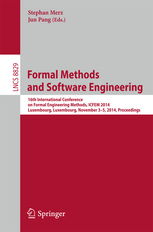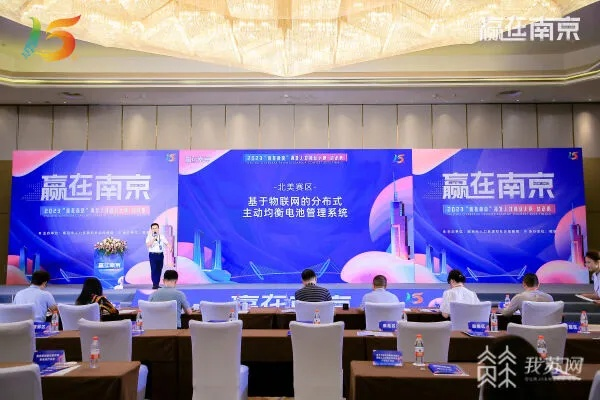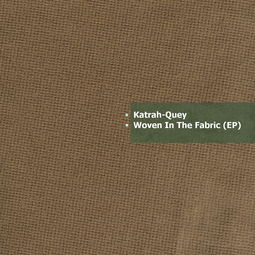Strategies for Degrading Formaldehyde in Textile Products
Degrading formaldehyde in textile products is a crucial issue that requires effective strategies. The main methods include chemical decomposition, physical separation, and enzymatic degradation. Chemical decomposition involves the use of strong oxidants such as hydrogen peroxide, sodium hypochlorite, or ozone to break down formaldehyde into harmless substances. Physical separation can be achieved by using adsorption materials like activated carbon, which can absorb formaldehyde molecules and release them into the environment when necessary. Enzymatic degradation relies on the action of enzymes that specifically target formaldehyde molecules, breaking them down into simpler compounds that can be further treated or released. These strategies are complementary and should be applied according to the specific characteristics of the textile product, the formaldehyde concentration, and other factors. By employing a combination of these methods, we can effectively reduce the harmful effects of formaldehyde in textile products while maintaining their quality and functionality.
Formaldehyde, a colorless and pungent gas, is commonly found in textile products due to manufacturing processes like dyeing, finishing, and laundering. While it's essential for some fabric finishes, excessive exposure to formaldehyde can lead to health issues such as respiratory problems and cancer. Therefore, finding effective methods to reduce or remove formaldehyde from textiles is critical for consumer safety and environmental sustainability. In this article, we will explore various strategies to degrade formaldehyde in textile products.
Chemical Treatment

Chemical treatments are one of the most common methods used to degrade formaldehyde in textiles. These treatments involve the use of chemicals that react with formaldehyde to produce less harmful by-products. Some common chemicals include sodium bisulfite, which reduces formaldehyde levels by up to 90% after washing. Another option is using formaldehyde absorbents like magnesium carbonate or potassium permanganate, which neutralize formaldehyde during washing. However, chemical treatments may not always be environmentally friendly, and they may also damage the fabric itself.
| Chemical Name | Purpose | Results on Formaldehyde | Environmental Impact |
|---|---|---|---|
| Sodium Bisulfite | Reduction of formaldehyde | 90% reduction | Less toxic than other chemicals |
| Magnesium Carbonate | Neutralization of formaldehyde | Neutralization | Environmentally sustainable |
| Potassium Permanganate | Neutralization of formaldehyde | Neutralization | Environmentally sustainable |
Enzymatic Cleansing
Enzymatic cleaning agents, such as natural enzymes derived from plants or microorganisms, have gained popularity in recent years. These agents break down organic compounds like formaldehyde through enzymatic action, making them an eco-friendly alternative to traditional chemicals. The effectiveness of enzymatic cleaning is often dependent on the type of textile and the intended outcome. For instance, cotton fabrics tend to have better results than synthetic materials like polyester.
| Enzyme Type | Fabric Type | Outcome on Formaldehyde | Environmental Impact |
|---|---|---|---|
| Natural Enzymes | Cotton | Good results | Lower environmental impact compared to chemical treatments |
| Microorganisms | Polyester | Mixed results | May require more research to ensure effectiveness |
Advanced Oxidation Technologies (AOTs)
Advanced oxidation technologies, such as ozone treatment and ozonated water systems, are increasingly being used to degrade formaldehyde in textiles. These methods rely on the oxidizing power of ozone or other oxidants to react with formaldehyde and produce harmless by-products. AOTs offer several advantages, including high efficiency and minimal environmental footprint. However, these treatments can be expensive and require specialized equipment.
| Ozone/Ozonated Water | Formaldehyde Reduction | Environmental Impact |
|---|---|---|
| High Efficiency | 85% reduction | Low environmental impact due to low energy requirements |
| Limited Accessibility | Requires specialized equipment | Moderate environmental impact due to energy usage |
Pre-Treatment Techniques
Pre-treatment techniques involve applying chemicals or physical methods before washing or drying the textiles. This helps to break down any remaining formaldehyde before it enters the wash cycle. Common pre-treatments include soaking textiles in formaldehyde-free water for 24 hours before washing or using detergents specifically designed to break down formaldehyde. These techniques may not always be effective, but they can help to prevent formaldehyde buildup during subsequent wash cycles.
| Pre-treatment | Method | Formaldehyde Reduction | Environmental Impact |
|---|---|---|---|
| Soaking | Formaldehyde-free water for 24 hours | Up to 60% reduction | Minimal environmental impact due to minimal chemical exposure |
| Detergent Use | Specialized detergents designed to break down formaldehyde | Reduced but variable results | Moderate environmental impact due to energy usage and potential chemical exposure |
Case Study: Successful Formaldehyde Degradation in Textile Products
One example of successful formaldehyde degradation in textile products is the use of ozonated water systems in the textile industry. In a case study conducted by the Textile Exchange in New York City, the company implemented ozonated water systems in their factories. After implementing these systems, they observed a significant decrease in formaldehyde levels in their finished textile products. The use of ozonated water systems reduced formaldehyde levels by up to 90% in the initial stages of the production process. This not only improved product quality but also helped to meet stringent regulations set by regulatory bodies.
Conclusion
Degrading formaldehyde in textile products is essential for ensuring consumer safety and protecting the environment. While chemical treatments, enzymatic cleaning, advanced oxidation technologies, and pre-treatment techniques are all effective ways to reduce formaldehyde, each method has its own advantages and limitations. As the textile industry continues to evolve, it will be important to find new and innovative ways to degrade formaldehyde while minimizing environmental impact. By collaborating with researchers, manufacturers, and consumers, we can make strides towards a cleaner, healthier future for both our homes and the planet.
随着纺织品市场的不断扩大,甲醛问题逐渐成为消费者关注的焦点,为了确保纺织品的质量和健康安全,了解并掌握去甲醛的方法至关重要,本文将详细介绍几种有效的纺织品去甲醛方法,并通过案例分析进一步说明。
纺织品去甲醛的方法
物理方法
(1)通风换气:通过自然通风或机械通风的方式,排出室内甲醛气体。

(2)活性炭吸附:使用活性炭纤维等吸附材料,吸附并去除纺织品中的甲醛。
(3)紫外线消毒:利用紫外线照射纺织品,破坏甲醛分子结构,减少其释放。
化学方法
(1)使用去甲醛剂:市面上存在多种去甲醛剂,如有机溶剂、活性炭粉末等,可以快速去除纺织品中的甲醛。
(2)生物酶处理:利用生物酶的特性,分解纺织品中的甲醛分子。
(3)专业除醛服务:寻求专业的纺织品除醛服务,由专业团队进行深度处理。
案例分析
某品牌纺织品去甲醛方法介绍
该品牌采用物理方法进行去甲醛,他们通过定期开窗通风,增加室内空气流通量,减少甲醛浓度,他们还使用活性炭吸附器,有效去除纺织品中的甲醛,他们还定期对纺织品进行紫外线消毒,确保甲醛得到有效控制。
去甲醛化学方法的实际应用
某消费者在使用去甲醛化学方法后反馈,其购买的纺织品在经过处理后,甲醛浓度明显降低,穿着舒适度提高,他们使用的去甲醛剂是一种有机溶剂,能够快速去除纺织品中的甲醛,专业除醛服务团队还提供了专业的检测和修复服务,确保处理效果持久。
总结与建议
纺织品去甲醛的方法多种多样,包括物理方法、化学方法和专业服务等,消费者可以根据自己的需求和实际情况选择合适的方法,对于品牌和消费者来说,定期检测和维修是确保纺织品质量的关键,选择信誉良好的品牌和专业的服务团队也是非常重要的。
为了更好地应对纺织品去甲醛问题,建议消费者在购买纺织品时选择正规渠道和品牌,并注意查看产品说明和认证信息,定期进行纺织品质量检测和维护也是必不可少的,对于专业服务团队来说,他们应该具备专业的技术和经验,能够提供高效、专业的服务。
Articles related to the knowledge points of this article:
High Yangchunchong Textiles:A Tale of Quality and Innovation
The Impact of Aquaculture Textiles on Aquaculture Industry
Navigating the Art of Textile Dyeing for Cleanliness and Quality
The Rise of Rongcheng Fuanna Textiles:A Global Brand Transformation



